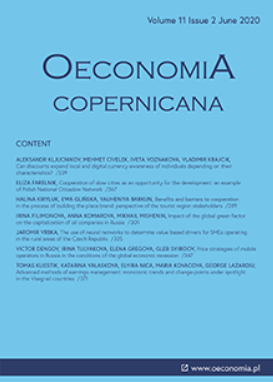Exhaustion while teleworking during COVID-19: a moderated-mediation model of role clarity, self-efficacy, and task interdependence
Exhaustion while teleworking during COVID-19: a moderated-mediation model of role clarity, self-efficacy, and task interdependence
Author(s): Loredana Mihalca, Lucia Rațiu, Gabriela Brendea, Daniel METZ, Florin DobreSubject(s): Psychology of Self, Organizational Psychology, Behaviorism, Health and medicine and law, Human Resources in Economy
Published by: Instytut Badań Gospodarczych
Keywords: teleworking during COVID-19; emotional exhaustion; role clarity; task interdependence; work overload;
Summary/Abstract: Research background: The global COVID-19 pandemic created an unprecedented challenge not only for employees’ well-being, but also for the nature of their work, as teleworking became the norm for many of them almost overnight. Thus, there is a need to a more fine-grained understanding of the specific job demands experienced while teleworking during COVID-19, and the specific resources that mitigate the detrimental effects of demands and help employees to adopt resilient responses during and beyond COVID-19. Purpose of the article: Drawing upon the job demands-resources model, the present study aims at investigating the link between work overload (a job demand) and employee well-being (i.e., burnout), considering role clarity (a job resource) as a mediator, and task interdependence and self-efficacy as two potential boundary conditions. Methods: In order to examine the link between work overload, role clarity and emotional exhaustion moderated by task interdependence and self-efficacy, we used survey data from 701 Romanian employees at a large information technology company, who worked from home during COVID-19. We employed regression-based path analysis to examine the hypothesized relations. Findings & value added: The results reveal that role clarity partially mediates the relation between work overload and emotional exhaustion while teleworking during COVID-19. Moreover, the results from the moderated mediation analysis show that role clarity, self-efficacy, and task interdependence interact in their effects on emotional exhaustion. This study has important theoretical and managerial implications for employee well-being that go beyond the pandemic. As this study shows, when high levels of workload and task interdependence cannot be avoided, employees’ personal (self-efficacy) and job (role clarity) resources might be particularly useful to reduce their exhaustion while teleworking. Based on these results, managers can design better jobs for remote workers and more flexible work arrangements in the future.
Journal: Oeconomia Copernicana
- Issue Year: 12/2021
- Issue No: 2
- Page Range: 269-306
- Page Count: 38
- Language: English

